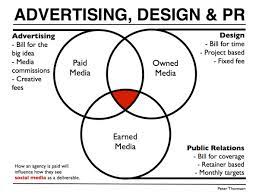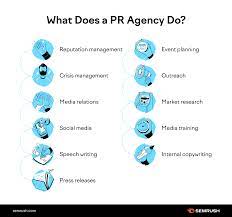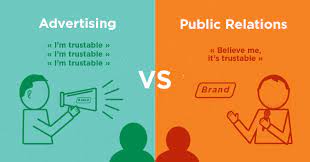Building Brands and Shaping Perceptions: The Power of a Public Relations Advertising Agency
Public Relations Advertising Agency: Building Brands and Shaping Perceptions
In today’s competitive business landscape, effective communication is key to success. Companies need to not only deliver their message but also build strong brands and shape positive perceptions among their target audience. This is where a public relations advertising agency plays a vital role.
A public relations advertising agency combines the power of public relations and advertising to create impactful campaigns that resonate with the intended audience. These agencies specialize in crafting compelling narratives, managing media relations, and developing strategic communication plans that enhance brand visibility and reputation.
One of the primary functions of a public relations advertising agency is to help businesses establish a strong brand identity. Through meticulous research and analysis, these agencies gain insights into the target market, identifying the values, aspirations, and preferences of consumers. Armed with this knowledge, they develop comprehensive branding strategies that differentiate their clients from competitors.
Brand building involves creating a consistent image across various channels, including traditional media outlets, digital platforms, social media networks, and more. A skilled agency knows how to leverage these channels effectively to maximize brand exposure while maintaining a consistent message that aligns with the client’s overall objectives.
Another critical aspect of a public relations advertising agency’s work is managing media relations. They act as intermediaries between their clients and journalists or influencers. By establishing strong relationships with key media personnel, they can secure valuable coverage for their clients in relevant publications or platforms.
Media coverage can significantly impact brand perception as it provides third-party validation and increases credibility. Skilled agencies know how to craft compelling press releases, pitch stories to journalists effectively, and manage crisis communications when necessary. They ensure that their clients’ messages are conveyed accurately while mitigating any potential negative impact on their reputation.
In addition to brand building and media management, public relations advertising agencies excel in creating impactful advertising campaigns. They possess expertise in designing visually appealing advertisements that capture attention and convey the desired message effectively. Whether it’s print, television, radio, or digital advertising, these agencies have the knowledge and skills to develop campaigns that resonate with the target audience and drive desired actions.
Furthermore, public relations advertising agencies understand the importance of integrating various communication channels. They leverage the power of social media marketing, content creation, influencer partnerships, and search engine optimization to amplify their clients’ reach and engagement. By adopting a holistic approach to communication, these agencies ensure that their clients’ messages are delivered consistently across multiple platforms.
Collaboration is at the heart of a successful partnership between a business and a public relations advertising agency. Agencies work closely with their clients to understand their goals, values, and target audience. This collaboration enables them to develop tailored strategies that align with the client’s unique needs and objectives.
In conclusion, a public relations advertising agency plays a crucial role in helping businesses build strong brands and shape positive perceptions among their target audience. By combining the power of public relations and advertising, these agencies create impactful campaigns that enhance brand visibility and reputation. Their expertise in brand building, media management, and advertising enables businesses to effectively communicate their message while differentiating themselves in today’s competitive market. Partnering with a skilled public relations advertising agency can be instrumental in achieving long-term success in an ever-evolving communication landscape.
9 Essential Tips for Effective Public Relations in Advertising Agencies
- Establish a strong online presence
- Know your target audience
- Develop relationships with key influencers
- Create compelling content
- Leverage PR events
- Monitor the news cycle
- Utilise public relations tools
- Measure results
- Stay consistent
Establish a strong online presence
Establishing a Strong Online Presence: A Key Tip for Public Relations Advertising Agencies
In today’s digital age, having a strong online presence is crucial for the success of any business, including public relations advertising agencies. With the majority of consumers turning to the internet for information and engagement, it is essential for agencies to establish a robust online presence to effectively reach their target audience and stay ahead in the competitive landscape.
One of the first steps in building an online presence is creating an engaging and user-friendly website. This serves as the agency’s virtual storefront, showcasing their services, expertise, and portfolio. The website should be aesthetically pleasing, easy to navigate, and provide relevant information about the agency’s capabilities. It should also include clear contact details so that potential clients can easily get in touch.
In addition to a well-designed website, public relations advertising agencies should leverage social media platforms to expand their reach and engage with their target audience. These platforms offer opportunities for agencies to share valuable content, showcase their work, and interact with followers. By consistently posting relevant and engaging content, agencies can establish themselves as thought leaders in the industry while building a loyal online community.
Another important aspect of establishing a strong online presence is search engine optimization (SEO). Optimizing the agency’s website and content for search engines helps improve visibility in search results. By conducting keyword research and implementing SEO strategies such as meta tags, relevant keywords within content, and backlinking from reputable sources, agencies can increase their chances of being discovered by potential clients searching for PR advertising services.
Building an online presence also involves actively monitoring and managing the agency’s online reputation. Public relations advertising agencies should regularly monitor online reviews, comments on social media platforms or review sites, and promptly address any negative feedback or concerns raised by clients or prospects. By responding professionally and resolving issues in a timely manner, agencies can demonstrate their commitment to client satisfaction and maintain a positive reputation.
Furthermore, public relations advertising agencies can enhance their online presence by leveraging digital marketing techniques such as content marketing, email marketing, and online advertising. By creating and sharing valuable content that addresses industry trends, challenges, and insights, agencies can position themselves as trusted advisors. Email marketing campaigns can help nurture leads and maintain regular communication with clients. Online advertising allows agencies to target specific demographics and increase brand visibility through platforms like Google Ads or social media ads.
In conclusion, establishing a strong online presence is a vital tip for public relations advertising agencies in today’s digital world. By creating an engaging website, utilizing social media platforms effectively, implementing SEO strategies, managing online reputation, and leveraging digital marketing techniques, agencies can expand their reach and engage with their target audience more effectively. Embracing these practices will not only help agencies stay competitive but also position them as industry leaders in the dynamic field of public relations advertising.
Know your target audience
When it comes to effective public relations advertising, one of the most crucial tips is to know your target audience. Understanding who your message is intended for allows you to tailor your communication strategies and deliver impactful campaigns that resonate with your desired demographic.
Knowing your target audience starts with thorough research and analysis. Dive deep into demographics, psychographics, and consumer behavior patterns to gain insights into their preferences, needs, and aspirations. This knowledge will help you craft messages that speak directly to their interests and motivations.
By understanding your target audience, you can determine the most appropriate channels to reach them. Whether it’s traditional media outlets, digital platforms, or social media networks, knowing where your audience spends their time allows you to focus your efforts on the most effective channels.
Moreover, understanding your target audience enables you to develop a tone of voice and messaging style that resonates with them. Different demographics respond differently to various communication styles. By tailoring your messaging accordingly, you can establish a genuine connection with your audience and build trust.
Another benefit of knowing your target audience is the ability to identify the key influencers or media outlets they follow. Collaborating with these influencers or securing coverage in relevant publications can significantly enhance brand visibility among your desired demographic.
Furthermore, understanding your target audience helps you identify any potential challenges or barriers that may hinder effective communication. By anticipating these obstacles in advance, you can proactively address them in your campaigns and develop strategies to overcome them.
In summary, knowing your target audience is a fundamental tip for successful public relations advertising. It allows you to tailor your communication strategies to resonate with the intended demographic, choose appropriate channels for reaching them effectively, develop messaging styles that connect with their interests, leverage key influencers or media outlets they follow, and anticipate any challenges that may arise along the way. By investing time and effort into understanding your target audience thoroughly, you set yourself up for success in delivering impactful campaigns that drive results.
Develop relationships with key influencers
Developing Relationships with Key Influencers: A Game-Changer for Public Relations Advertising Agencies
In the fast-paced world of public relations advertising, one of the most effective strategies for building brand awareness and shaping positive perceptions is to develop relationships with key influencers. These influential individuals have the power to sway opinions, drive engagement, and amplify your message to a wider audience.
Key influencers can be found across various industries and platforms, including social media, blogs, podcasts, and traditional media outlets. They have established themselves as trusted authorities in their respective fields and have a dedicated following that values their opinions and recommendations.
Partnering with key influencers can provide numerous benefits for public relations advertising agencies. Here’s why developing relationships with these influencers is a game-changer:
- Expanded Reach: Key influencers have a loyal and engaged audience that trusts their recommendations. By collaborating with them, public relations advertising agencies can tap into this existing network of followers, expanding their reach exponentially. This increased exposure can lead to higher brand visibility and awareness among the target audience.
- Credibility Boost: When an influential figure endorses your brand or product, it lends credibility to your messaging. Their followers perceive them as knowledgeable and trustworthy sources of information. By associating your brand with these influencers, you gain instant credibility in the eyes of their audience.
- Targeted Engagement: Influencers often have a niche following that aligns closely with specific industries or interests. This targeted engagement allows public relations advertising agencies to reach a highly relevant audience that is more likely to be interested in their clients’ products or services. It enables agencies to deliver tailored messages that resonate with the intended demographic.
- Authentic Advocacy: Key influencers are known for being authentic in their content creation and recommendations. When they genuinely believe in your brand or product, their endorsement comes across as genuine rather than forced or promotional. This authenticity helps build trust among their followers, leading to increased interest and engagement.
- Valuable Content Creation: Influencers are skilled content creators who know how to captivate their audience. By collaborating with them, public relations advertising agencies can tap into their creativity and expertise to develop engaging content that aligns with their clients’ brand values and objectives. This content can be shared across various platforms, further amplifying the brand’s message.
Building relationships with key influencers requires a strategic approach. Public relations advertising agencies should identify influencers whose values, interests, and audience align closely with their clients’ target market. They should engage in meaningful conversations, provide value, and foster genuine connections over time.
It’s crucial for agencies to approach influencer partnerships as mutually beneficial collaborations rather than one-sided transactions. By offering unique opportunities, exclusive access, or valuable content, agencies can incentivize influencers to become brand advocates who genuinely support and promote their clients’ offerings.
In conclusion, developing relationships with key influencers is a game-changer for public relations advertising agencies. These influential individuals have the power to expand reach, boost credibility, drive targeted engagement, provide authentic advocacy, and create valuable content. By strategically partnering with key influencers who align with their clients’ brand values and target audience, agencies can leverage the influence of these individuals to achieve remarkable results in today’s competitive communication landscape.
Create compelling content
Creating Compelling Content: The Key to Effective Public Relations Advertising
In the world of public relations advertising, content is king. With the ever-increasing competition for attention, businesses need to cut through the noise and engage their target audience effectively. This is where creating compelling content becomes crucial.
Compelling content has the power to captivate, inform, and persuade. It goes beyond mere promotion and instead focuses on providing value to the audience. Whether it’s a blog post, social media update, video, or infographic, compelling content leaves a lasting impression and builds brand loyalty.
One of the first steps in creating compelling content is understanding your target audience. What are their needs, interests, and pain points? By conducting thorough research and analysis, you can gain insights into what resonates with your audience and tailor your content accordingly.
Once you have a clear understanding of your target audience, it’s time to develop a content strategy that aligns with your business goals. This strategy should outline the types of content you will create, the platforms you will use to distribute it, and the key messages you want to convey.
Compelling content is not just about flashy visuals or catchy headlines; it also needs to provide valuable information or entertainment. Whether it’s educational articles that offer insights into industry trends or entertaining videos that tell a story related to your brand values, make sure your content adds value to your audience’s lives.
In addition to providing value, compelling content should also be authentic and relatable. People connect with stories that resonate with their own experiences or emotions. By sharing authentic stories about your brand or featuring customer testimonials, you can build trust and establish an emotional connection with your audience.
Another important aspect of creating compelling content is optimizing it for search engines. Incorporating relevant keywords strategically throughout your content helps improve its visibility in search engine results. This ensures that your target audience can find and engage with your content easily.
Lastly, don’t forget the power of visuals. Incorporating eye-catching images, videos, or infographics can significantly enhance the appeal and shareability of your content. Visual elements not only grab attention but also help convey complex information in a more digestible format.
In conclusion, creating compelling content is essential for effective public relations advertising. It helps businesses cut through the noise, engage their target audience, and build brand loyalty. By understanding your audience, developing a content strategy, providing value, being authentic and relatable, optimizing for search engines, and incorporating visuals, you can create content that resonates with your audience and drives desired actions. So start crafting compelling content today and watch your brand thrive in the competitive world of public relations advertising.
Leverage PR events
Leverage PR Events: Enhancing Brand Visibility and Engagement
In the realm of public relations advertising, one powerful tool that can significantly enhance brand visibility and engagement is leveraging PR events. These events provide a unique opportunity for businesses to connect with their target audience, create meaningful experiences, and generate positive publicity.
PR events come in various forms, such as product launches, press conferences, charity fundraisers, industry conferences, or even exclusive brand experiences. They offer a platform for businesses to showcase their products or services while building relationships with key stakeholders, including media representatives, influencers, industry experts, and potential customers.
One of the primary benefits of leveraging PR events is the ability to generate media coverage. By carefully planning and executing an event that captures attention and aligns with the brand’s messaging, businesses can attract journalists and secure valuable press coverage. This coverage not only increases brand exposure but also provides third-party validation that enhances credibility.
Additionally, PR events allow businesses to engage directly with their target audience. Whether it’s hosting a launch party or organizing a workshop or seminar related to their industry, these events provide an opportunity for face-to-face interaction. This personal touch helps build trust and loyalty among attendees while allowing businesses to gather valuable feedback and insights from their customers.
Furthermore, PR events can be used as a platform to communicate key messages effectively. Through strategic event planning and execution, businesses can ensure that their brand values and unique selling propositions are conveyed clearly to attendees. This helps shape positive perceptions among the audience while differentiating the brand from competitors.
Another advantage of leveraging PR events is the potential for creating buzz on social media platforms. With attendees sharing their experiences through posts, photos, videos, or live updates on social media channels, businesses can extend the reach of their event beyond physical attendance. This user-generated content acts as authentic endorsements that further enhance brand visibility and engagement.
To leverage PR events successfully, careful planning is essential. Businesses need to define their objectives, identify their target audience, and select the most suitable event format. They should also consider partnering with relevant influencers or industry experts who can amplify the event’s reach and impact.
Moreover, businesses should ensure that the event aligns with their brand identity and values. From venue selection to decor, from guest speakers to promotional materials, every aspect should reflect the brand’s personality and resonate with the target audience.
In conclusion, leveraging PR events can be a powerful strategy for enhancing brand visibility and engagement. These events provide opportunities for businesses to connect directly with their target audience, generate media coverage, and communicate key messages effectively. By carefully planning and executing these events, businesses can create memorable experiences that not only increase brand exposure but also build trust and loyalty among attendees. With the right approach, PR events can become invaluable tools in a comprehensive public relations advertising strategy.
Monitor the news cycle
In the fast-paced world of public relations advertising, staying on top of the news cycle is crucial. Monitoring the news cycle allows a public relations advertising agency to stay informed about current events, industry trends, and potential opportunities for their clients.
By keeping a close eye on the news, agencies can identify relevant topics and timely issues that align with their clients’ brands or messaging. This enables them to craft strategic communication campaigns that capitalize on these trends and capture the attention of their target audience.
Monitoring the news cycle also helps agencies anticipate potential crises or negative publicity that may impact their clients. By being aware of what’s happening in the media landscape, they can proactively develop crisis communication strategies and respond swiftly if any issues arise. This allows them to protect their clients’ reputation and minimize any potential damage.
Furthermore, staying informed about industry news and developments enables agencies to position their clients as thought leaders or experts in their respective fields. By leveraging relevant news stories or industry insights, agencies can secure media opportunities for their clients such as interviews, guest articles, or speaking engagements. This helps to enhance brand visibility and credibility among key stakeholders.
In addition to traditional media outlets, monitoring the news cycle also involves keeping tabs on social media platforms and online communities where conversations are happening in real-time. Social listening tools can be utilized to track mentions of client brands or relevant keywords across various social media channels. This allows agencies to gauge public sentiment, identify emerging trends or issues, and engage with audiences directly.
Overall, monitoring the news cycle is an essential tip for any public relations advertising agency aiming to deliver effective campaigns for their clients. By staying informed about current events and industry trends, agencies can seize opportunities, manage potential crises effectively, position clients as thought leaders, and engage with audiences in a timely manner. It is a proactive approach that ensures agencies are always one step ahead in the dynamic world of communication.
Utilise public relations tools
Utilise Public Relations Tools: Enhancing Communication with Your Audience
In the fast-paced world of business, effective communication is essential for success. One way to enhance your communication strategies is by utilising public relations tools. These tools are designed to help businesses connect with their target audience, build brand awareness, and shape positive perceptions.
One of the key public relations tools is media relations. This involves establishing relationships with journalists and media outlets to secure valuable coverage for your business. By crafting compelling press releases, pitching newsworthy stories, and providing expert insights, you can position your brand as a trusted source of information in your industry.
Social media platforms have become indispensable tools for public relations. With millions of users worldwide, platforms like Facebook, Twitter, Instagram, and LinkedIn offer an incredible opportunity to engage with your audience directly. By creating engaging content and actively participating in conversations, you can build a loyal following and amplify your brand’s message.
Another important tool is content creation. High-quality content that provides value to your audience can significantly enhance your brand’s reputation. Whether it’s informative blog posts, captivating videos, or engaging infographics, creating compelling content helps establish thought leadership and positions your brand as an authority in its field.
Influencer partnerships have also become a popular tool in public relations advertising. Collaborating with influential individuals who align with your brand values can help you reach a wider audience and gain credibility among their followers. By leveraging their influence and expertise, you can tap into new markets and increase brand exposure.
Monitoring and analytics tools are crucial for evaluating the effectiveness of your public relations efforts. These tools allow you to track media mentions, social media engagement, website traffic, and other key metrics. By analysing this data regularly, you can gain valuable insights into what resonates with your audience and make informed decisions about future communication strategies.
Crisis communication tools are essential for managing potential PR crises effectively. In today’s digital age, news spreads rapidly, and negative incidents can damage a brand’s reputation. Having a crisis communication plan in place, along with tools to monitor and respond swiftly to any issues, is vital for mitigating damage and maintaining trust with your audience.
In conclusion, utilising public relations tools can greatly enhance your communication efforts and help you connect with your target audience more effectively. Whether it’s media relations, social media engagement, content creation, influencer partnerships, or crisis communication management, these tools provide valuable opportunities to build brand awareness and shape positive perceptions. By leveraging these tools strategically and consistently monitoring their impact, you can strengthen your brand’s reputation and achieve long-term success in today’s competitive business landscape.
Measure results
Public Relations Advertising Agency Tip: Measure Results for Success
In the world of public relations and advertising, measuring results is a crucial aspect of success. A skilled public relations advertising agency understands the importance of tracking and evaluating the outcomes of their campaigns. By measuring results, they can assess the effectiveness of their strategies, make informed decisions, and continuously improve their efforts.
One of the key benefits of measuring results is gaining insights into the impact of a campaign. By setting clear objectives at the outset, agencies can determine specific metrics to track throughout the campaign’s lifespan. These metrics may include brand visibility, website traffic, social media engagement, media mentions, or lead generation.
By monitoring these metrics and analyzing the data collected, agencies can gauge how well their strategies are performing. They can identify which tactics are driving positive results and adjust or optimize those that may be falling short. This data-driven approach allows agencies to make informed decisions based on evidence rather than relying on assumptions or guesswork.
Measuring results also provides valuable feedback for clients. It allows them to see tangible evidence of the agency’s efforts and understand the return on investment (ROI) they are receiving. Clients can gain insights into how their brand is being perceived in the market, how well their messaging is resonating with their target audience, and whether their communication objectives are being met.
Additionally, measuring results enables agencies to demonstrate their value to clients. By presenting clear reports that showcase key performance indicators (KPIs) and highlight achievements, agencies can build trust and credibility with their clients. This transparency fosters a strong partnership based on mutual understanding and shared goals.
Moreover, measuring results allows for continuous improvement and refinement of strategies. Agencies can identify areas that need adjustment or enhancement based on real-time data analysis. They can learn from both successes and failures to refine future campaigns for even better outcomes.
In today’s digital age, there are numerous tools available to aid in result measurement. From website analytics to social media monitoring platforms, agencies can gather data from various sources and gain a comprehensive understanding of campaign performance. These tools provide valuable insights into consumer behavior, audience demographics, and engagement patterns.
In conclusion, measuring results is a vital tip for any public relations advertising agency. It enables agencies to assess the effectiveness of their strategies, make informed decisions, and continuously improve their efforts. By tracking metrics and analyzing data, agencies can demonstrate their value to clients, refine their strategies for better outcomes, and foster strong partnerships. Embracing a data-driven approach ensures that campaigns are not only creative but also impactful and aligned with the client’s objectives.
Stay consistent
In the world of public relations advertising, consistency is key. When it comes to building a strong brand and shaping positive perceptions, staying consistent in your messaging and actions is crucial.
Consistency builds trust and credibility among your target audience. When your audience sees a consistent message across various communication channels, it reinforces your brand identity and makes it easier for them to recognize and remember you. Whether it’s through your advertising campaigns, social media presence, or media interactions, maintaining a consistent tone, style, and values helps establish a strong brand image.
Consistency also extends to the frequency and timing of your communications. Regularly engaging with your audience keeps you top of mind and shows that you are actively invested in building relationships. Whether it’s through regular press releases, blog posts, or social media updates, staying consistent with your content delivery helps maintain engagement and keeps your brand relevant.
Moreover, consistency in delivering on promises is crucial for building trust. If you make commitments or promises to your audience or customers, ensure that you follow through consistently. This builds a reputation for reliability and fosters loyalty among your audience.
Staying consistent doesn’t mean being stagnant or repetitive. It’s about finding the right balance between maintaining a consistent core message while adapting to changing trends and consumer needs. Consistency should be accompanied by innovation and creativity to keep your brand fresh and relevant.
In summary, consistency is the foundation of effective public relations advertising. It builds trust, reinforces brand identity, maintains engagement, and fosters loyalty among your target audience. By staying consistent in your messaging, actions, timing, and delivery of promises while embracing innovation when needed, you can create a strong brand presence that resonates with consumers and sets you apart from competitors.








